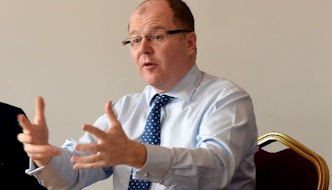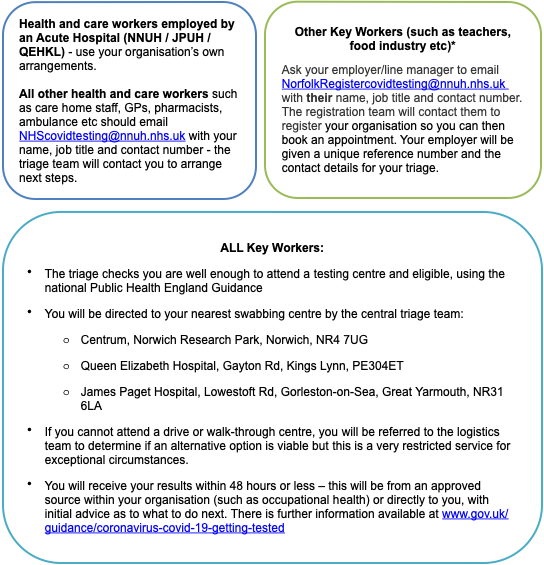
Delivering Net Zero: Bright Blue and WSP - My Contribution on Transport Decarbonisation
Who wants to go back to the daily madness of congestion, pollution & unhealthy commuting?
Imagine a Transport Strategy based on: ActiveTravel, CleanAir, ConnectedPlaces, and SmartBuses.
Check out my essay as part of the Bright Blue “Delivering Net Zero” Book.
Bright Blue and WSP: Net zero more urgent than ever for government and business
Bright Blue, the independent think tank for liberal conservatism, and WSP, the leading engineering professional services firm, have today published a major essay collection, Delivering Net Zero, which outlines radical new ideas for how the UK can deliver on its net zero commitment by 2050, with contributions from nearly 40 leading chief executives, politicians, academics and thought leaders from across the private, public and third sectors.
The essay collection from Bright Blue and WSP argues that delivering net zero is both an environmental necessity and an economic opportunity. It rejects the argument that the transition to net zero requires vast amounts of government spending and intervention, highlighting instead the progress that has been made on decarbonisation to date, and could further be made in the future, through well-regulated markets with sensible incentives from government.
The essay collection offers analysis and ideas across nine key areas: transport; land; utilities; buildings; industry; waste; finance; government; and, innovation. The publication provides inspiration to politicians, policymakers, and practitioners in advance of the Conference of the Parties (COP) 26 in Summer 2021 to implement innovative programmes and policies to ensure the UK’s market-based economy can meet its net-zero commitments.
Bright Blue and WSP believe that COVID-19 has strengthened the case for action on the challenge of this century – climate change. Governments, businesses and communities need and will be expected to do more to mitigate and build resilience to disruptive crises, such as global warming and extreme weather events.
The collection includes contributions from Nigel Wilson (Chief Executive, Legal & General Group), John Holland-Kaye (Chief Executive, Heathrow Airport Ltd), Peter Jelkeby (Chief Executive, IKEA UK & Ireland), Tony Juniper CBE (Chair, Natural England), Christine McGourty (Chief Executive, Water UK), Richard Walker (Managing Director, Iceland Foods), Nicholas Boys Smith (Co-Chair, Building Better, Building Beautiful Commission), Graham Stuart MP (Minister for International Trade), George Freeman MP (Former Minister for Transport), Ben Houchen (Mayor, Tees Valley), Professor Michael Grubb (Professor of Energy and Climate Change, University College London), Barny Evans (Sustainable Places Director, WSP), and many more.
My Essay Below:
Driving green growth
Transport decarbonisation
George Freeman MP
The COVID-19 pandemic – and the state of emergency it has triggered across the world – is an urgent wake-up call to the implications of economic globalisation. When the immediate pandemic is through, we will need to have a serious conversation about the implications COVID-19 has had on international and national resilience of our increasingly global economy. That shouldn’t stop at the global supply chain for personal protective equipment (PPE) or the impact of Chinese dietary customs on global biosecurity. The crisis of COVID-19 shines a fresh and alarming spotlight on the other major issue of global resilience: the risk of climate change.
As we face the immediate threat of large-scale death, disease, economic damage and societal disruption, the issue of climate change might seem irrelevant. Indeed, the combination of empty streets, clean air, satellite images of vanishing smog and the urgent need to restore global economic growth is already leading some to dismiss the green agenda as a luxurious indulgence we can ill afford. They are profoundly wrong.
We would be wiser to treat the COVID-19 crisis as a warning of what happens when we take resilience for granted. If we want to prevent the disastrous rise in global temperature which scientists are telling us unambiguously is coming unless we take action, we need to make the post-COVID-19 recovery a moment to seriously embrace the economics of resilience at the heart of our economic system. And, specifically, to make the post-COVID-19 recovery one that is based on clean, smart, sustainable and resilient green growth.
Central to this is the key policy question of how to deliver on our net zero commitments in a way which accelerates economic growth and job creation in new sectors whilst contributing to a healthier and more productive economy and society.
If – as I have argued elsewhere – the Brexit vote was a change moment requiring us to revisit our economic model as an increasingly finance and service-orientated economy serving the European bloc to embrace a more global trade-based economic model, then questions of biosecurity, resilience and sustainability become more important. In a world where low-cost Chinese and Asian developing economies take the lion’s share of mass manufacturing, the UK will need to build a strong global franchise based on our strengths in key sectors such as life science, agritech and cleantech: the technologies and innovations which will support sustainable economic growth. In the next 30 years, when the world goes through the agricultural and industrial revolutions we pioneered here in the UK over the last 300 years, it will need a host of new technologies to drive sustainable growth.
“The market for clean growth – whether technology, consulting or legal – is already huge and only set to get bigger”
On net zero, the key question is all about delivery. The UK has already accepted the case for action and for leadership. We have made the net zero targets legally binding. All our attention must look at how we convert that national and global goodwill into concrete action.
We have a basic choice ahead of us. Do we follow or do we lead? Following would mean doing just enough to stay out of trouble and hide in the pack. Leading means gripping this crisis and showing the world how to reach that net zero future. As an MP and citizen, I strongly believe it has to be the latter. Not just because of our global responsibility, but also because it’s good business.
“We would be wiser to treat the COVID-19 crisis as a warning of what happens when we take resilience for granted”
This has been the central theme of my career in both industry and politics since leaving Cambridge 35 years ago. Through a fifteen-year career in high growth technology, company venture capital and ten years in frontline politics – from being Parliamentary Private Secretary (PPS) at the Department of Energy and Climate Change in 2010, Chair of the All Party Group on Agricultural Science and Technology and Inclusive Growth, through to Minister for Life Science and Agritech, UK Trade Envoy, Chair of the Prime Minister’s Policy Board and most recently the UK’s first-ever Minister for the Future of Transport, leading our ‘Transport Decarbonisation Strategy’ – I know first-hand that we have a unique opportunity in the UK. No market is likely to be bigger than the market for clean energy alternatives to dirty, expensive and unsustainable fossil fuels.
As we leave the EU Single Market to become a more globally oriented trading economy, we need new markets we can plug into. The market for clean growth – whether technology, consulting or legal – is already huge and only set to get bigger.
If we use our net zero targets as the spur to a national economic mission to lead the world, we can lay the foundations for major new markets. Brexiteers need precisely this sort of opportunity. They should be grabbing it. There are huge opportunities for so-called ‘left-behind’ places like Teesside, parts of Northern Ireland and Humberside to become vibrant ‘New Energy Hubs’.
In decarbonisation there is a significant opportunity for the UK to help lead in the science and technology of clean growth. And after the successful decarbonising of our energy sector in the last decade, nowhere is this now more urgent than in transport. Alongside agriculture and housing, transport is the biggest emitting sector, responsible for 28% of our CO2 emissions.1
That’s why I was so delighted when the Prime Minister asked me to go to the Department for Transport to frame a 21st century ‘Transport Decarbonisation Strategy’ – which I’m delighted the Transport Secretary, Grant Shapps MP, rightly launched in March rather than delay as a result of the COVID-19 crisis.
By embracing that strategy – and delivering it through a combination of metrics, digitalisation and place – I believe we now have the chance to lead the world. It is time to make our commitments a reality.
The UK ‘Transport Decarbonisation Strategy’ needs at its heart two key elements. First, a proper industrial strategy for UK leadership in the R&D, financing, testing, data collection and enlightened regulation of transport technology and innovation in the pipeline.
Second, a place-based strategy for empowering people and places around the country to embrace cleaner, greener, healthier transport choices.
For too long the UK political and policy debate has been conducted in silos. One group of activists making a passionate case for lower, slower growth and more tax and regulation to tackle polluters. And the other group making a lazily optimistic and complacent economic argument
– largely by entrenched interests who have much to lose from the disruptive effects of new entrants – that we can stand back and allow the market to adapt on its own to consumer demand.
We need to break the stale debate and silo’d ‘capture’ of the climate change debate and embrace a much more responsible and business-like mission to both drive growth and sustainability.
In the UK, I believe that means embracing both an active ‘Industrial Strategy for Technology Leadership’, but also a bold programme of devolution and freedom for local places to embrace the healthier travel options most households and neighbourhoods want.
If we do both, we have a chance of achieving the goal. One without the other – an industrial strategy without city and place-based leadership, or the reverse – will simply not work. It needs both to stand a chance of succeeding.
But how do we then deliver? What are the levers we can pull to make this happen? I believe there are three delivery mechanisms. First, place. Second, metrics. Third, digitalisation.
The importance of place needs to be put at the heart of UK transport policy. The modal structure of the Department for Transport (DfT) – four divisions by transport mode (aviation, maritime, road and rail) – reflects a longstanding and disastrous separation of transport policymaking from the needs of places. Fundamentally, transport is all about connectivity of places. The main aim of all those using transport is about getting from A to B. Bad transport holds back people and places. People who use public transport care more about their local transport than national. But in the UK we develop policy – and delivery – through an overly centralised and silo’d model of modal separation.
This heavy traditional Whitehall functional model of departmental modal silos – road, rail, shipping and aviation – mitigates against both place-based solutions, local leadership and the uptake of innovation through Testbeds.
Highways England and Network Rail are largely place-blind. Their focus is on big national “schemes”. As national quangos they are accountable to civil servants in DfT silos, not the communities who are paying for and actually need the transport. But DfT is massively London-focused. The staffing ratio tells its own story: thousands of civil servants in the capital, and how may in the West Midlands? One.
This is a massive problem for delivering more enlightened and innovative transport systems, and the decarbonisation which will fail without it. We will not deliver decarbonisation unless we make the UK a more attractive testbed for 21st century transport and mobility innovation.
To do that we must liberate and harness people’s willingness to do things for their own places more than for the government, and allow local leaders to try new approaches. We need to change the planning and development paradigm away from car dependency, and car and home ownership, and insist on much more joined-up place-based transport tech planning. We must break down the national stats and targets into smaller local regional bite sizes, including highlighting the best and spotlighting the worst practice. Finally, we must identify the key people and places where we need to deliver, as well as the ten dirtiest stations, motorways, ports, airports, and make people much more accountable.
The second key decarbonisation delivery pillar is metrics. Successful delivery against targets requires proper data and metrics. We will never deliver decarbonisation without clear metrics and data for place-based carrot and stick at both a government and personal level. We need clear rewards and penalties.
“We need to break the stale debate and silo’d ‘capture’ of the climate change debate and embrace a much more responsible and business-like mission to both drive growth and sustainability”
As we have seen in healthcare, clear and trusted data has enormous power to drive changes in behaviour. Think of such simple yet life- changing innovations such as heartrate monitors and calorie counting. The transport decarbonisation agenda lacks any clear universal metrics or data. We need a global, universally respected metric. The UK has a huge opportunity to develop this metric and then lead the global sector of developing standards around it. A simple metric like ‘emissions per passenger kilometre’ (EPPK) would be completely transformational.
By incorporating it into all modes and places as the metric, we could start to compare and drive progress and change. For example, it could be built into the local government funding settlement to create an incentive for councils to build more energy efficient homes. The third pillar is the power of digitalisation. Harnessing the power of digital is as important as – and goes hand in hand with – data and metrics. It is vital at all levels.
At a national level, digital signalling on the railways and digital road pricing and traffic management are all key to improving capacity and reducing emissions. At a regional and city level, clear data on the daily congestion and pollution patterns is key to managing the decrease of both. At a personal level, too, all the behavioural insights show people are much more likely to change habits when they can see the benefit. The more bespoke and real it can be – £100 at the end of the year or £10 the end of the month – the better. This insight inspired my work on a Green Carbon Citymapper app and the insistence that it should be at the heart of the DfT Transport Decarbonisation Strategy’
During my time as Minister, this approach – insisting that the stale silos of green or growth is tackled with a much more integrated plan for both industrial strategy leadership and place-based devolution – was being welcomed by both industry and green campaigners. It holds the possibility of a real win-win: unlocking both UK industrial R&D and technology leadership, healthier local transport choices, and planning to achieve our net zero legal targets.The level of support – from both industry and green campaigners – suggests this approach offers the best hope for UK leadership in this area. One thing is for certain. We simply cannot afford to dither or delay any longer.
Action must be taken now before it’s too late. Not just because the levels of congestion, pollution and obesity have risen to appalling and genuinely unsustainable levels in the UK. But also because the COVID-19 crisis has revealed how shockingly vulnerable our globalised economy has become and that we need to be much more pro-active in building resilience into our post-COVID-19 recovery. The future is ours to shape. Together, it’s time to seize this unique opportunity for a more globally resilient model of post-COVID-19 economic growth.
George Freeman MP is the Member of Parliament for Mid Norfolk. He has served as Minster of State for the Future of Transport at the Department for Transport, Chair of the Number 10 Policy Board, Minister for Life Sciences at the Department of Health and Business, UK Trade Envoy and Parliamentary Private Secretary at the Department for Energy and Climate Change.
1. Department for Transport, “Decarbonising transport: setting the challenge”, https://assets. publishing.service.gov.uk/government/uploads/system/uploads/attachment_data/file/878642/ decarbonising-transport-setting-the-challenge.pdf (2020), 10.

Improving connectivity in our part of the world was one of my first pledges when I began campaigning to be the MP for Mid Norfolk back in 2007.
We know only too well that there has been a historic lack of investment in Norfolk and the East and, while there has been a lot of positive progress in recent years (the full dualling of the A11 and increasing broadband speeds to name just two examples), there remains so much more that needs to be done.
I am immensely proud of the part I played in helping the A47 Alliance secure the £300million required for the first round of A47 dualling improvements. However, although we must get the design and detail correct, it has taken far too long for the works to commence. We need this improvement package as soon as possible if we are to boost safety on our roads and ensure Norfolk has the transport network it needs to unlock its full economic potential.
That’s why I am so pleased to hear that Highways England are to begin their archaeological trial trenching for the key North Tuddenham-Easton project at the beginning of June. This is a vital step forwards – and one that I am assured will be carried out safely and in accordance with all of the current guidelines on social distancing and protective measures.
It remains imperative however that, while this progress is being made, we also ensure that any potential rat-running through the villages south of the key strategic Wood Lane/Berry’s Lane junction at Honingham is minimised. This much needed progress must not come at the cost of our rural way of life here in Mid Norfolk, and at the gross detriment of the communities that live between Honingham and Wymondham.
That’s why I also remain firmly committed to working with the local Taskforce, Highways England, Norfolk County Council and others to not only try and ensure the junction’s layout and design is pulled together correctly, but also to make sure a proper mitigation package is developed to protect this rural communities. I hope to be able to report more on that in the not too distant future.

Whilst I support offshore renewable wind energy and recognise the huge boost it will represent to our economy here in the Eastern region, it is vital that the cabling and connectivity infrastructure is properly planned: to maximise efficiency, reduce waste and cost, and to avoid unnecessary landscape, environmental and economic disruption across our county.
That’s why I am delighted to hear that the Secretary of State has decided to extend the examination period for the Norfolk Boreas Wind Farm development application – from May to, no longer than, 12th October 2020.
Given the current disruption created by the Coronavirus crisis, a whole host of parties (including fellow parliamentary colleagues and I) have been calling for this crucial examination period to be extended – to allow Registered Interested Parties (many of whom are diverting their full energy and attention towards the Norfolk Coronavirus response) additional time to properly engage with the later stages of the examination period. The Secretary of State has listened to those calls and acted accordingly. This is positive news.
Of course, the Norfolk Boreas application is just one part of a much wider problem – the lack of a proper overall strategy for the delivery of offshore wind infrastructure in the East. Together with my fellow parliamentary colleagues, I remain firmly committed to driving this campaign on – both locally and in Westminster.
I hope to have further news shortly.
To read more about the wider campaign I am leading, please click here

The government’s Coronavirus Job Retention Scheme will remain open until the end of October, the Chancellor announced today (Tuesday 12 May 2020).
Coronavirus Job Retention Scheme will continue until end of October
- furloughed workers across UK will continue to receive 80% of their current salary, up to £2,500
- new flexibility will be introduced from August to get employees back to work and boost economy
In a boost to millions of jobs and businesses, Rishi Sunak said the furlough scheme would be extended by a further four months with workers continuing to receive 80% of their current salary.
As we reopen the economy, we need to support people to get back to work. From the start of August, furloughed workers will be able to return to work part-time with employers being asked to pay a percentage towards the salaries of their furloughed staff.
The employer payments will substitute the contribution the government is currently making, ensuring that staff continue to receive 80% of their salary, up to £2,500 a month.
Chancellor Rishi Sunak said:
Our Coronavirus Job Retention Scheme has protected millions of jobs and businesses across the UK during the outbreak – and I’ve been clear that I want to avoid a cliff edge and get people back to work in a measured way.
This extension and the changes we are making to the scheme will give flexibility to businesses while protecting the livelihoods of the British people and our future economic prospects.
New statistics published today revealed the job retention scheme has protected 7.5 million workers and almost 1 million businesses.
The scheme will continue in its current form until the end of July and the changes to allow more flexibility will come in from the start of August. More specific details and information around its implementation will be made available by the end of this month.
The government will explore ways through which furloughed workers who wish to do additional training or learn new skills are supported during this period. It will also continue to work closely with the Devolved Administrations to ensure the scheme supports people across the Union.
The Chancellor’s decision to extend the scheme, which will continue to apply across all regions and sectors in the UK economy, comes after the government outlined its plan for the next phase of its response to the coronavirus outbreak.
The scheme is just one part of the government’s world-leading economic response to coronavirus, including an unprecedented package for the self-employed, loans and guarantees that have so far provided billions of pounds in support, tax deferrals and grants for small businesses.
Today the government is also publishing new statistics that show businesses have benefitted from over £14 billion in loans and guarantees to support their cashflow during the crisis. This includes 268,000 Bounce Back Loans worth £8.3 billion, 36,000 loans worth over £6 billion through the Coronavirus Business Interruption Loan Scheme, and £359 million through the Coronavirus Large Business Interruption Loan Scheme.
Mike Cherry, National Chairman of the Federation of Small Businesses, said:
The Job Retention Scheme is a lifeline which has been hugely beneficial in helping small employers keep their staff in work, and it’s extension is welcome. Small employers have told us that part-time furloughing will help them recover from this crisis and it is welcome that new flexibility is announced today.
BCC Director General Adam Marshall said:
The extension of the Job Retention Scheme will come as a huge help and a huge relief for businesses across the UK.
The Chancellor is once again listening to what we’ve been saying, and the changes planned will help businesses bring their people back to work through the introduction of a part-time furlough scheme. We will engage with the Treasury and HMRC on the detail to ensure that this gives companies the flexibility they need to reopen safely.
Over the coming months, the government should continue to listen to business and evolve the scheme in line with what’s happening on the ground. Further support may yet be needed for companies who are unable to operate for an extended period, or those who face reduced capacity or demand due to ongoing restrictions.
Dame Carolyn Fairbairn, CBI Director-General, said:
The Chancellor is confronting a challenging balancing act deftly. As economic activity slowly speeds up, it’s essential that support schemes adapt in parallel.
Extending the furlough to avoid a June cliff-edge continues the significant efforts made already and will protect millions of jobs.
Introducing much needed flexibility is extremely welcome. It will prepare the ground for firms that are reawakening, while helping those who remain in hibernation. That’s essential as the UK economy revives step-by-step, while supporting livelihoods.
Firms will, of course, want more detail on how they will contribute to the scheme in the future and will work with government to get this right.
Above all, the path of the virus is unpredictable, and much change still lies ahead. The government must continue to keep a watchful eye on those industries and employees that remain at risk. All schemes will need to be kept under review to help minimise impacts on people’s livelihoods and keep businesses thriving.
The greater the number of good businesses saved now, the easier it will be for the economy to recover.
Further information
Cumulative number of approved facilities
Cumulative value of approved facilities
Cumulative number of applications
Bounce Back Loan Scheme
268,173
£8.378 billion
363,646
Coronavirus Business Interruption Loans Scheme
35,919
£6.094 billion
71,316
Coronavirus Large Business Interruption Loans Scheme
59
£359 million
358
- the applications figure includes approved applications, those applications that are still to be processed, applications that have been declined and those applications that may turn out not to be eligible or cases where customers will decide not to proceed
- figures show cumulative applications and approvals up to close of business on 10 May 2020
- these figures include data from BBB accredited lenders shared directly with HMT by close of business on 11 May 2020
Number of Jobs Furloughed
7.5 million
Number of Employers Furloughing
935,000
Total £ claimed
£10.1 billion
- these figures are up until 9am today

The government’s world-leading scheme to support the self-employed has today opened for claims – weeks ahead of schedule.Self-Employment Income Support Scheme opens for applications today.
Great news that from 8am this morning self-employed individuals or members of partnerships whose business has been adversely affected by coronavirus will be able to apply for a Self-Employment Income Support Scheme (SEISS) grant worth 80% of their average monthly trading profits.
Millions are expected to benefit from the scheme with the payments – to be paid in a single instalment covering three months and capped at £7,500 – expected to land in bank accounts within six working days of each claim.
Everyone eligible for the SEISS, which is one of the most generous support schemes announced by any government in response to coronavirus, will be able to receive the government grant by 25 May, or within six days of a completed claim.
The Chancellor of the Exchequer, Rishi Sunak, said:
We’re working ahead of time to deliver support to the self-employed and from today, applications open for the millions of people eligible for the scheme.
With payments arriving before the end of this month, self-employed across the UK will have money in their pockets to help them through these challenging times.
From today, people will be able to make their claim on a specified date between 13-18 May, based on their Unique Tax Reference number. HMRC has assigned eligible self-employed individuals a specific date to apply on and this can be checked on HMRC’s online checker.
The SEISS it part of a comprehensive package of support for self-employed people, including Bounce Back loans, income tax deferrals, rental support, increased levels of Universal Credit, mortgage holidays and the various business support schemes the government has introduced to protect businesses during this time. Derek Cribb, CEO of IPSE (the Association of Independent Professionals and the Self-Employed) said:
For the self-employed, Coronavirus is not only a health crisis, but also a pressing income crisis. It is therefore very welcome that the Government has managed to get this new scheme in place ahead of schedule, and that a section of the freelance community can now get the help they need early. We are delighted that the government has heeded much of IPSE’s advice by setting up the Self-Employment Income Support Scheme, which extends a much-needed lifeline to those self-employed people who are eligible for it.
Mike Cherry, National Chairman of the Federation of Small Businesses, said:
The self-employment income support scheme represents a lifeline for the millions of self-employed people who are expected to qualify. I would encourage all those who think they are eligible to use the online checker if they’ve not done so yet, and to apply on the date allocated.
We are particularly pleased to see the scheme opening earlier than scheduled, with a simple fast-track application and a promise for speedy payment. Getting the system designed and built ahead of schedule is impressive. Just like the Job Retention Scheme portal we hope it will cope with the high expected demand. I would like to pay tribute to the staff of HMRC for the behind the scenes work to get this scheme off the ground.
Brian Berry, Chief Executive of the Federation of Master Builders said:
The self-employed account for 40% of the construction workforce so the government’s decision to bring forward the payment to the end May will be very welcome news for the many independent tradespeople who operate in construction. The government’s support package to date has been targeted at businesses so the self-employed will be welcoming this cash boost at a time when they need it most.
Further information
Individuals are eligible if their business has been adversely affected by coronavirus, they traded in the tax year 2019 to 2020, intend to continue trading, and they:
- earn at least half of their income through self-employment
- have trading profits of no more than £50,000 per year
- traded in the tax year 2018 to 2019 and submitted their Self Assessment tax return on or before 23 April 2020 for that year
HMRC calculate the amount to be paid to each eligible claimant based on an average of the tax returns for 2016/17, 2017/18 and 2018/19.
Check if you are eligible for the scheme here.
Customers have been invited to claim their SEISS grant on a specified date, from 13 - 18 May. They won’t be able to apply before their claim date but can make a claim after that day.
People can check their date using HMRC’s online checker at any time.
https://www.tax.service.gov.uk/self-employment-support/enter-unique-taxpayer-reference
For further information, please read HMRC’s guidance or speak to your tax agent. If you need further support, please use HMRC’s webchat service or call the Covid-19 Helpline on 0800 024 1222.

Following the PM’s Statement on Sunday evening, and the new Government position and 50-page guidance, I thought it would be helpful to provide a summary of the key changes, and what it means for us here in Mid Norfolk.
My summary below and here.
Whilst, to be honest, I do not think the communications have been well handled, and do not think “stay Alert” is especially helpful for people wanting clear guidance, I do believe the Prime Minister and Government are serious about trying to find ways to minimise the wider economic and health disruption to our society and economy and to ease the worst constraints of the lockdown as soon as is safely possible.
From my daily and weekly calls with all the local health and Operation Shield leaders and constituents I have several specific concerns:
- Whilst the hospitals are relatively quiet and have all the PPE they need, our local Care sector is still vulnerable to serious outbreaks and very high mortality rates and different availability to PPE
- The data on the disease is not yet adequate to allow lockdown: PHE and NHSE do not yet have accurate data on the care sector
- The level of testing capacity is not sufficient to allow a widespread return to safe work
- The new guidance allowing households to drive long-distance and take extended exercise must not be an excuse for large scale tourist to our vulnerable coastal communities
- The local economy, especially tourism in its vital peak season, has been devastated by the lockdown. The only thing worse would be a false start with staff de-furloughed and shops and venues opened up, only to see a spike AND then another lockdown.
- Tor many of our vulnerable local high streets and traditional shops this will be the end. We will need a major economic recovery investment Plan.
The decision not to do that yet must be the right one: here in Norfolk whilst the overall infection and mortality rate in the general population is low and levelling off, the death rate in our care homes and amongst the most vulnerable is rising. On the Governments 5 criteria, we are not in a position to end the lockdown.
I welcome the Governments commitment to start slowly encouraging those who CAN return to work safely to do so, whilst closely monitoring the situation to ensure we don’t see a secondary surge in infection.
Given the high number of older & vulnerable residents on the coast, it is VITAL that we don’t see a wave of visitors and 2nd homers flocking from across the country to the Norfolk coast and risking a major localised epidemic in our coastal communities.
After 8 weeks of major sacrifice in a national lockdown, it would be a disaster to ease off too soon in the wrong ways and compound the economic damage with a surge in infection and mortality.
This crisis is far from over. As we knew 8 weeks ago, it will test us our local and national resilience.
This weekend was a poignant moment to remember that older generations have been through worse. I also attach a link to my weekend video on the importance of VE Day as a moment to recapture the spirit of respect for sacrifice for the common good shown today by so many volunteers and frontline health and care staff. (Link)
I and my team of 3 continue to work flat out handling the mountain of correspondence, calls and requests for guidance and help.
We will get through this. I look forward to being able to get back out and about and see constituents across our part of Norfolk.
Until then - let us all stay safe, stay sane (!), stay socially distant, keep washing our hands and staying in touch as best we can.
George
My Latest Local Interviews:
BBC Radio Norfolk (Sunday 10th May): https://www.bbc.co.uk/sounds/play/p08bs5dh Starts at 1hr 20mins
BBC Radio Norfolk (Monday 11th May): https://www.bbc.co.uk/sounds/play/p08bs5gh Starts at 8:35.

As part of my ongoing work to help communities in Mid Norfolk create their own Neighbourhood Plans, I am delighted to promote the efforts of Saham Toney Parish Council.
Many hours of tireless community work has gone into producing the Plan and, even in these difficult times, the hard work continues.
Unable to hold a public meeting, the Neighbourhood Plan Working Group have prepared a set of ‘stay at home’ slideshows to update local businesses and residents on the Plan’s progress. These can be downloaded from their website here
For those without the time to sit down and read through the slideshows in detail, the Working Group have produced a ‘5 minute Coffee Break’ summary, which can also be accessed on the website.
The Neighbourhood Plan is a hugely important piece of work for the community – helping to determine how they would like the village to grow over the next two decades. I would encourage everyone associated with the village to take the time to look over the documents and share their views.

As our county celebrates on VE Day our local and national role in the defeat of Nazi tyranny, it is a moment to remember all those of a generation who gave so much to defend our precious liberty, democracy and common decency which is the hallmark of our national way of life.
It is both a huge sadness and somehow also all the more poignant that because of the Covid pandemic we cannot enjoy the celebration with the wave of street parties and freedom festivals we had hoped for. Instead on this 75th anniversary, the entire world stands united against a common enemy, and across our county, our communities are locked down.
It is also somehow particularly poignant that our many & much-respected veterans - embodied so magnificently by the wonderful Captain Tom - are not able to enjoy the freedoms that they have given so much to secure - for the rest of us.
Let us this VE Day weekend remember especially all our armed forces - both veteran and serving today, and all the ancillary and support services who gave so much to the national war effort: from the RFA to the Home Guard, the Land Girls to the ambulance drivers, the Bletchley heroes to the medical and other staff who gave so much.
Just as the War required everyone to pull together in a national effort, so this Covid crisis too.
Just as the War required huge sacrifices from people on the frontline and in the home and rearguard across the communities of this country, so this crisis too. Across our county and county, we have seen an extraordinary and inspiring coming together of neighbours, communities, different public services and Gov and private sector in a national effort to defeat today’s viral enemy.
As we raise a glass to the heroes of the victory in Europe 75yrs ago, let us also raise a glass to the heroes of this crisis: the staff on the frontline of our health and care services, our local civil and civic emergency responders and community volunteers who have done so much to ensure that as few people as possible suffer.
We may not be able to throng the streets this VE Day - but let’s salute and capture the same spirit of defiant unity and common endeavour in defence of the most precious asset of all: the knowledge that no one is alone, we are here for each other, and that the best human instincts will always prevail.
George

Great news that here in Norfolk we have set up our own Norfolk Testing stations and Mobile testing system, so that people locally can get tests closer to home.
Click here for more info: https://www.gov.uk/guidance/coronavirus-covid-19-getting-tested
Community coronavirus testing in Norfolk and Waveney now available to “key workers” (and/or household members with symptoms).
Click here for more information: Click here
The NHS in Norfolk and Waveney is offering coronavirus tests to key workers* such as teachers or food industry staff, to help them remain in work. This also applies to members of their household who may have coronavirus symptoms causing the key worker to self-isolate.
Employers or line managers are required to begin the booking process via a local email system. This is to confirm the person is eligible, after which they will be able to make their own appointment. Bookings can be made immediately.
John Webster, an Executive Director with NHS Norfolk and Waveney Clinical Commissioning Group, said: “Our local hospitals have worked together to significantly expand community NHS coronavirus testing. We recommend people try to book using our local system rather than the national system because you will be directed to a local test centre rather than a regional centre although the national system offers home tests which equally some people may prefer.”
People who are confirmed eligible for testing in Norfolk and Waveney will be given an appointment at one of three drive or walk-through centres. These are at the Centrum centre, close to the Norfolk and Norwich University Hospital (NNUH), at the Queen Elizabeth Hospital, King’s Lynn (QEHKL) or at the James Paget University Hospital (JPUH) in Gorleston. The service is being managed collaboratively on behalf of all three hospitals by the Norfolk and Norwich University Hospital.
Once an employer or line manager has applied on behalf of a key worker and/or their family, they will be issued a unique reference number and further instructions. All applications will be checked to make sure people are well enough to attend a testing centre, and eligible for a test in line with Public Health England guidance.
People will receive their test results within 48 hours or less, either directly or via their employer’s occupational health service, together with initial advice about to what to do next.
* Key workers include many people working in education, transport, many public services, energy, power and water/sewerage workers, and those working to provide, distribute or sell food. The precise definition is available on this government web page: https://www.gov.uk/guidance/coronavirus-covid-19-getting-tested#key-workers
The newly expanded provision in Norfolk and Waveney provides an alternative to the national testing offer which has centres at Ipswich, Stansted, Peterborough and elsewhere.
A more detailed description of the Norfolk and Waveney service follows below.
Norfolk and Waveney Key Worker Testing Referral Service
**Typical coronavirus symptoms are fever, dry cough, shortness of breath, general malaise and myalgia but some may experience other less typical symptoms such as anorexia, diarrhoea, nausea, dizziness, headache, vomiting, loss of taste and smell or pleuritic chest pain. As such, individuals may also be suitable for testing if they have any upper respiratory symptoms or a general malaise, with or without a fever or cough. Please note all key worker testing applies to both symptomatic employees (isolating for 7 days) and household members (isolating for 14 days)
Am I a key worker? Read the list on the Government’s website.
Key workers are people whose jobs are vital to public health and safety during the coronavirus lockdown. Because their work is so vital, the Government is keen to ensure they are able to work with as little restriction as possible, which means being able to put their children in school and using necessary transport. As of 15 April 2020 this was:
All NHS and social care staff, including:
- doctors, nurses, midwives, paramedics, social workers, care workers, and other frontline health and social care staff including volunteers
- the support and specialist staff required to maintain the UK’s health and social care sector
- those working as part of the health and social care supply chain, including producers and distributors of medicines, and medical and personal protective equipment
- NHS Blood and Transplant frontline staff (blood donation staff, specialist nurses for organ donation, staff running therapeutic apheresis services in NHS hospitals)
- those providing ancillary support to NHS workers (such as hotel accommodation for NHS staff)
Essential public services staff, including:
- prisons, probation, courts and tribunals staff, judiciary
- religious staff
- charities and workers delivering critical frontline services
- those responsible for the management of the deceased
- journalists and broadcasters covering coronavirus or providing public service broadcasting
- public health and environmental staff, such as specialist community public health nursing
Public safety and national security staff, including:
- police and support staff
- Ministry of Defence civilians, contractors and armed forces personnel (those critical to the delivery of critical defence and national security outputs and critical to the response to the coronavirus pandemic), including defence medical staff
- fire and rescue service employees (including support staff),
- National Crime Agency staff, those maintaining border security, prison and probation staff and other national security roles, including those overseas
- British Transport Police and the Maritime and Coastguard Agency
Transport workers, including:
- those who keep the air, water, road and rail passenger and freight transport modes operating during the coronavirus response
- those working on transport systems through which supply chains pass
Education and childcare workers, including:
- support and teaching staff
- social workers
- specialist education professionals
Critical personnel in the production and distribution of food, drink and essential goods, including:
- those involved in food production, processing, distribution, sale and delivery
- those critical to the provision of other essential goods, such as medical supply chain and distribution workers, including community pharmacy and testing (such as PHE labs), and veterinary medicine
- workers critical to the continuity of essential movement of goods
Local and national government staff critical to the effective delivery of the coronavirus response, or delivering essential public services, such as the payment of benefits
Public and environmental health staff, including in government agencies and arm’s length bodies
Funeral industry workers
Frontline local authority staff and volunteers, including
- those working with vulnerable children and adults, victims of domestic abuse, and the homeless and rough sleepers (and hotel staff supporting these groups)
- voluntary sector organisations providing substance misuse treatment
Utilities, communication and financial services staff, including:
- staff needed for essential financial services provision (including but not limited to workers in banks, building societies and financial market infrastructure)
- the oil, gas, electricity and water sectors (including sewerage)
- information technology and data infrastructure sector and primary industry supplies to continue during the coronavirus response
- essential staff working in the civil nuclear, chemicals, telecommunications (including but not limited to network operations, field engineering, call centre staff, IT and data infrastructure, 999 and 111 essential services), postal services and delivery, payments providers and waste disposal sectors.


